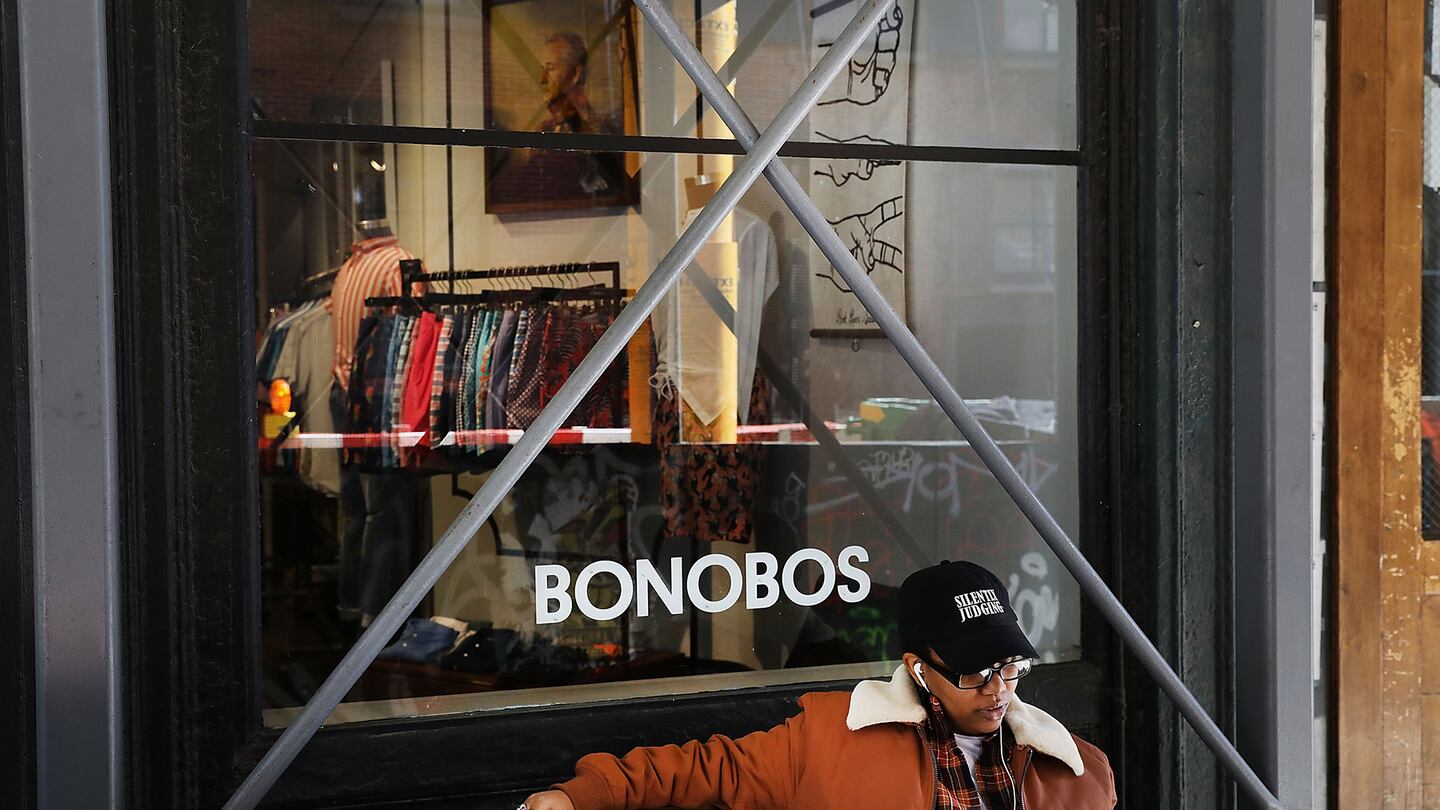
The Business of Fashion
Agenda-setting intelligence, analysis and advice for the global fashion community.

Agenda-setting intelligence, analysis and advice for the global fashion community.

Walmart is selling direct-to-consumer menswear brand Bonobos to EXPR, which owns mall retailer Express, and brand management firm WHP Global for $75 million. WHP Global will acquire Bonobos outright, with Express taking control of the menswear brand’s operating assets.
The deal, which is expected to close before the end of this quarter, is a knockdown from the $310 million valuation Bonobos secured when it sold to Walmart back in 2017. Rising interest rates means that some profitable brands are forced to take lower valuations, but it’s also the latest sign of Walmart’s failed efforts to move into the DTC sector.
When Walmart bought Bonobos, it appointed then-chief executive Andy Dunn to oversee the retailers’ growing stable of direct-to-consumer brands. Those efforts would prove futile. Walmart sold online womenswear brand ModCloth to private equity firm Go Global in 2019 just two years after acquiring the start-up. Jet.com, the online marketplace Walmart bought for a record-breaking $3 billion in cash in 2016, would go on to spurn billions in losses for the retail giant. Walmart shuttered Jet.com in 2020. Still, Walmart has built a large e-commerce business with some executives from the brands it acquired playing a role in shaping its online shopping strategy.
But the sell-off is not a reflection of whether Bonobos can grow profitably. EXPR says Bonobos, which helped usher in a wave of online direct-to-consumer brands when it launched in 2007, will help the company shore up its profits and cash flow generation this year. Bonobos generated around $200 million in sales in 2022 and maintained about 35 percent gross margins. It will also give retailer Express’ popular menswear business a much-needed merchandising touch-up.
ADVERTISEMENT
These types of deals are popular lately. As the DTC sector faces a slowdown and pressure to turn profits or go under, strategics are on the hunt for money-making digital brands that can help them reignite growth.
Victoria’s Secret acquired size-inclusive intimates brand Adore Me last November for $400 million in cash. At the time, the 11-year-old start-up was projecting over $200 million in sales for the year with EBITDA profits and 55 percent gross margins. Victoria’s Secret was struggling to attract enough new customers despite a rebranding that has seen it ditch the ultra-sexy marketing it relied on for decades.
Editor's Note: The article was revised on 14 April 2023. A previous version of the story incorrectly referred to WHP Global as a holding company. It is a brand management firm. The article was also revised on 17 April 2023. A previous version misstated Bonobos' estimated 2022 gross margins.
Victoria’s Secret acquired e-commerce brand Adore Me this week, in what’s likely to be the first of many deals between strategics and fast-growing start-ups. But if history is any guide, there’s no guarantee that Adore Me will help usher Victoria’s Secret into the future.
For fashion start-ups, raising money and growing sales came easily. But with costs rising and profits elusive, securing a happy ending for investors is proving much harder.

Malique Morris is Direct-to-Consumer Correspondent at The Business of Fashion. He is based in New York and covers digital-native brands and shifts in the online shopping industry.
In London, where independent labels have been hit hard by the implosion of key stockist Matches, brands like Clio Peppiatt, Marfa Stance and Completedworks have grown direct-to-consumer businesses that peers can learn from.
Apparel start-ups founded on the promise of offering men the perfect T-shirt are proving resilient in an otherwise dreary DTC sector rampant with fire sales, bankruptcies and steep revenue declines.
Apparel brands Knot Standard and Billy Reid are teaming up in a move investors say we may see more of as fashion start-ups seek alternative funding routes to grow their businesses.
Warby Parker, Everlane and other brands are partnering with small, but buzzy fashion labels as an inexpensive way to find new customers, and regain some status with shoppers who have moved on.